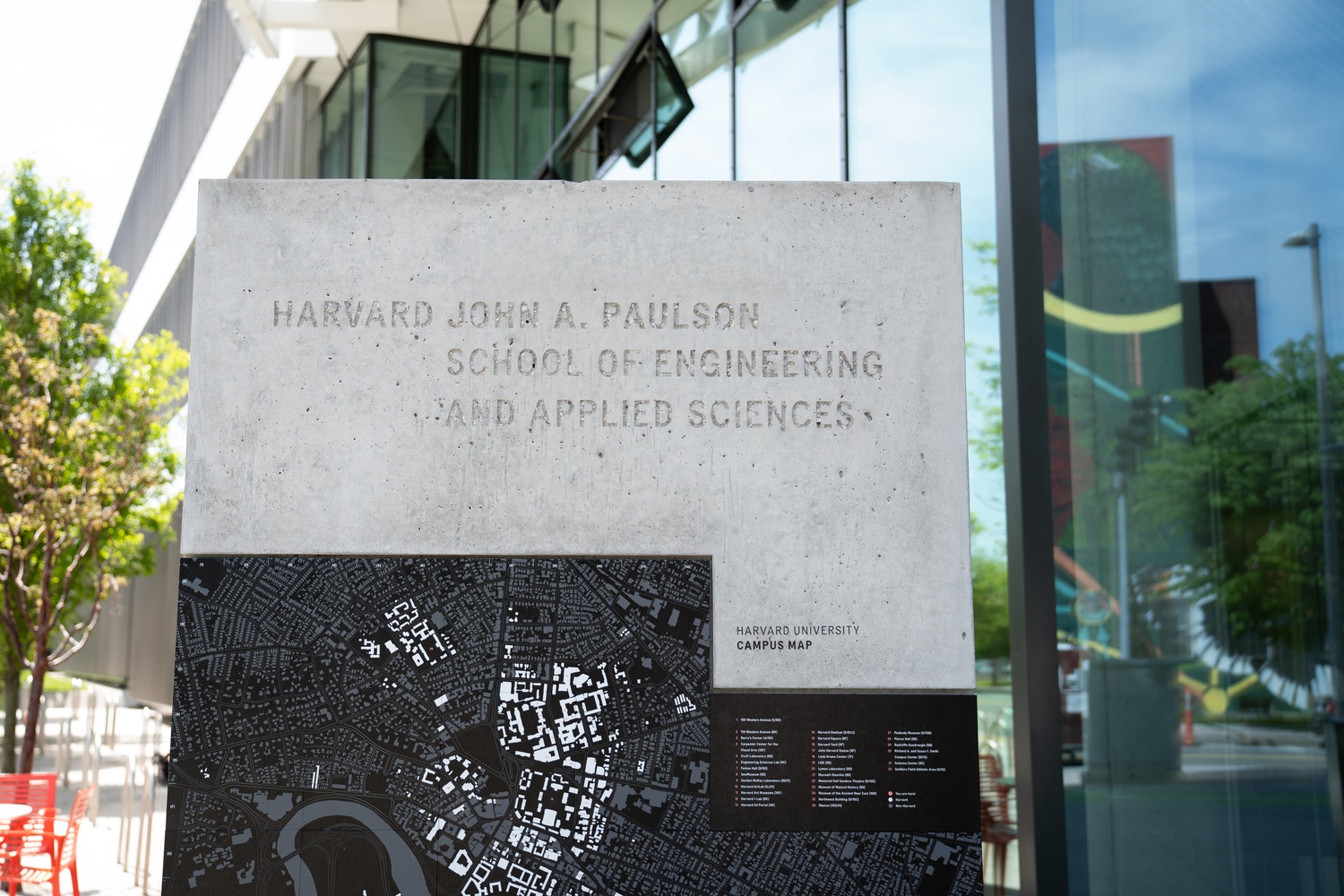
News
On Survey of Harvard Undergrads, 63% of Respondents Favored Divestment from Israel

News
Summers Visited Epstein’s Island During 2005 Honeymoon

News
Summers Will Not Finish Semester of Teaching as Harvard Investigates Epstein Ties

News
Harvard College Students Report Favoring Divestment From Israel in HUA Survey

News
‘He Should Resign’: Harvard Undergrads Take Hard Line Against Summers Over Epstein Scandal
I’m a SEAS Graduate. The Layoffs Harm Our Students and Our School.
Updated November 22, 2025, at 10:40 p.m.
“Harvard has an engineering school!?” is a common reaction when I share that I received my Bachelor of Science in Electrical Engineering from Harvard University.
Harvard proudly boasts its liberal arts education but its engineering program is often overlooked. Even Charles W. Eliot, class of 1853, Harvard’s 21st president, once declared that “the practical spirit and the literary or scholastic spirit are both good, but they are incompatible.”
Harvard’s recent actions at SEAS seem to reflect this view — and cast a grim shadow over the future of engineering at our University. Recent severe Ph.D. cuts and staff layoffs, reflect a reckoning in response to funding reductions and a damaging endowment tax. The sacrifices had not, for the most part, directly impacted undergraduates until the recent dismissal of a number of Harvard School of Engineering and Applied Sciences lecturers and advisors — a sudden move that caused alarm and heartbreak for students and alumni alike.
As a recent alumnus, I can attest that our advisors are not peripheral figures. They are the backbone of our programs — teaching courses, guiding us through requirements, and developing the curriculum that shapes our degrees. Losing them is not merely an administrative inconvenience. It is a rupture students will feel daily.
Harvard’s engineering programs are still relatively young. It wasn't until 2007 that the School of Engineering and Applied Sciences officially came into being. Unlike well-established engineering schools like MIT and the University of Illinois Urbana-Champaign, SEAS is still shaping its identity. That is both its challenge and its opportunity.
When I declared my concentration in Electrical Engineering, there was no universal fixed course sequence, no standard roadmap. It was difficult — sometimes chaotic — but what made the difference were the people who guided me through that uncertainty: advisors, lecturers, and mentors who believed in me and what SEAS could become.
Chris Lombardo and Bryan Yoon — two staff members who have since been laid off — were among those people. They were not only advisors but teachers, collaborators, and advocates for their students. Lombardo co-taught my first electrical engineering course, helped me find my footing as a teaching fellow, and mentored me through one of the department’s most meaningful opportunities: Engineering Without Borders. In the associated course, we designed clean water systems for underdeveloped communities. It was one of the few spaces where engineering came alive as both a practical science and a means of service. It depended on Lombardo’s willingness to teach a course dedicated to the work, and familiarity with the national EWB organization. Without him, I worry our chapter will cease to exist — or, at best, function in a significantly diminished capacity
The dismissal of Yoon, Lombardo and many other SEAS staff is a severe loss. Seniors completing their theses have lost long term mentors, like section leaders and lab mentors. For younger students, declaring or new to the concentration, the lack of dedicated advisors makes it far more difficult to find direction and confidence in a daunting — yet deeply gratifying — field. These are not minor inconveniences but fundamental detriments to the quality and continuity of education.
At its core, the purpose of a university is to teach. Teaching is not merely the transmission of knowledge but the nurturing of curiosity, resilience, and creativity. In engineering — a discipline defined by its breadth, depth, and real-world consequences — mentorship is indispensable. This guidance teaches students not only how to build, but how to weigh tradeoffs, take responsibility, and make choices that shape lives beyond the classrooms and labs. The relationships between developing engineers and mentors are invaluable and irreplaceable.
I do not envy administrators managing budgets at this difficult moment. But if cuts must be made, they should not come at the cost of educational integrity. Harvard’s greatness should not be measured by its name or the size of its endowment, but by the excellence of teachers and the engagement of students.
Further, I reject Eliot’s view that the practical and scholarly spirits are incompatible. As someone with a concentration in engineering and a secondary in the liberal arts, I believe their interplay is what makes Harvard unique, and it is precisely this harmony that must be protected. SEAS represents a rare space where engineers are forged within a liberal arts tradition — protecting and growing that environment is essential.
Now is a moment to refocus, not retreat. Sacrifices may be necessary, but teachers should never be at the top of that list. If this philosophy is not taken to heart and acted upon, soon enough, prospective students will turn elsewhere, remaining faculty and staff will lose faith in SEAS when their actions do not align with their mission.
Correction: November 22, 2025
A previous version of this article incorrectly described some individuals who were laid off as “SEAS faculty.” In fact, they are “SEAS staff.”
Oriana Gjini graduated from the College in 2025.
Want to keep up with breaking news? Subscribe to our email newsletter.

